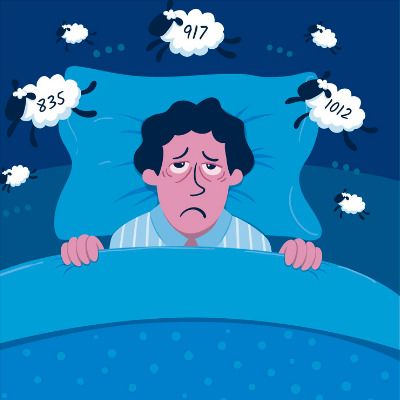A potentially dangerous sleep ailment that affects millions of individuals worldwide is sleep apnea. For a prompt diagnosis and course of therapy, it is important to identify the signs of sleep apnea. The following are some typical signs of sleep apnea that you should not disregard:
Modalert 200 Tablet is a medicine used in the treatment of excessive daytime sleepiness (narcolepsy). It promotes wakefulness and helps you to stay awake. Thereby, reducing the tendency to fall asleep during the day and restoring the normal sleep cycle.
Excessive Snoring:
Snoring that is loud and continuous is one of the main signs of sleep apnea. It happens when the throat tissues vibrate due to a partly closed airway while you sleep.
Pausing to Breathe:
People who have sleep apnea may sometimes gasp or halt their breathing while they are asleep. These stops may come and go many times throughout the course of the night, lasting anything from a few seconds to a minute.
Oversleeping throughout the day:
Two frequent signs of sleep apnea are excessive daytime drowsiness and chronic exhaustion. People with sleep apnea may struggle to remain awake throughout the day and wake up feeling unrefreshed, even after spending the whole night in bed.
Headaches in the morning:
Another possible indicator of sleep apnea is experiencing headaches or feeling drowsy when you wake up. Frequent pauses in breathing while you sleep might alter oxygen concentrations and cause headaches when you wake up.
Mood fluctuations and irritability:
Sleep apnea may have an impact on mental health and mood, which can cause irritation, mood swings, and trouble focusing. Mood and behavior changes may be caused by sleep disorders and chronic sleep deprivation.
Armodafinil is a medication used to reduce extreme sleepiness due to narcolepsy and other sleep disorders, such as periods of stopped breathing during sleep. The recommended dosage of Armodafinil tablets for patients with sleep disorders is Artvigil 150 tablets taken orally once a day in the morning, approximately 1 hour before the start of a work shift. The dose for children must be determined by a doctor.
Having trouble concentrating:
Having trouble focusing and thinking clearly are classic signs of sleep apnea. Sleep disturbances may negatively impact memory, focus, and problem-solving skills, which might impact performance at work or in the classroom.
Sore throat or dry mouth:
Dry mouth or sore throat upon awakening might be a sign of breathing issues while you were asleep, such as snoring or mouth breathing. Sleep apnea is often linked to these symptoms.
Regular Urination during Night:
Frequent nighttime urination, or notaria, is a typical sign of sleep apnea. Frequent urination disturbs sleep, which may lead to fragmented sleep and weariness throughout the day.
Uneasy Sleep:
People who have sleep apnea may have restless sleep, which is marked by frequent awakenings, tossing and turning, and trouble keeping up a regular sleep schedule.
Apneas observed:
A family member or bed partner may sometimes witness apnea episodes or gasping throughout the night, which are signs of breathing difficulties that are consistent with sleep apnea.
It’s critical to see a healthcare provider for a thorough assessment and diagnosis if you or a loved one exhibit any of these signs. Timely diagnosis and suitable intervention may enhance the quality of sleep, mitigate symptoms, and lower the likelihood of consequences linked to sleep apnea.




